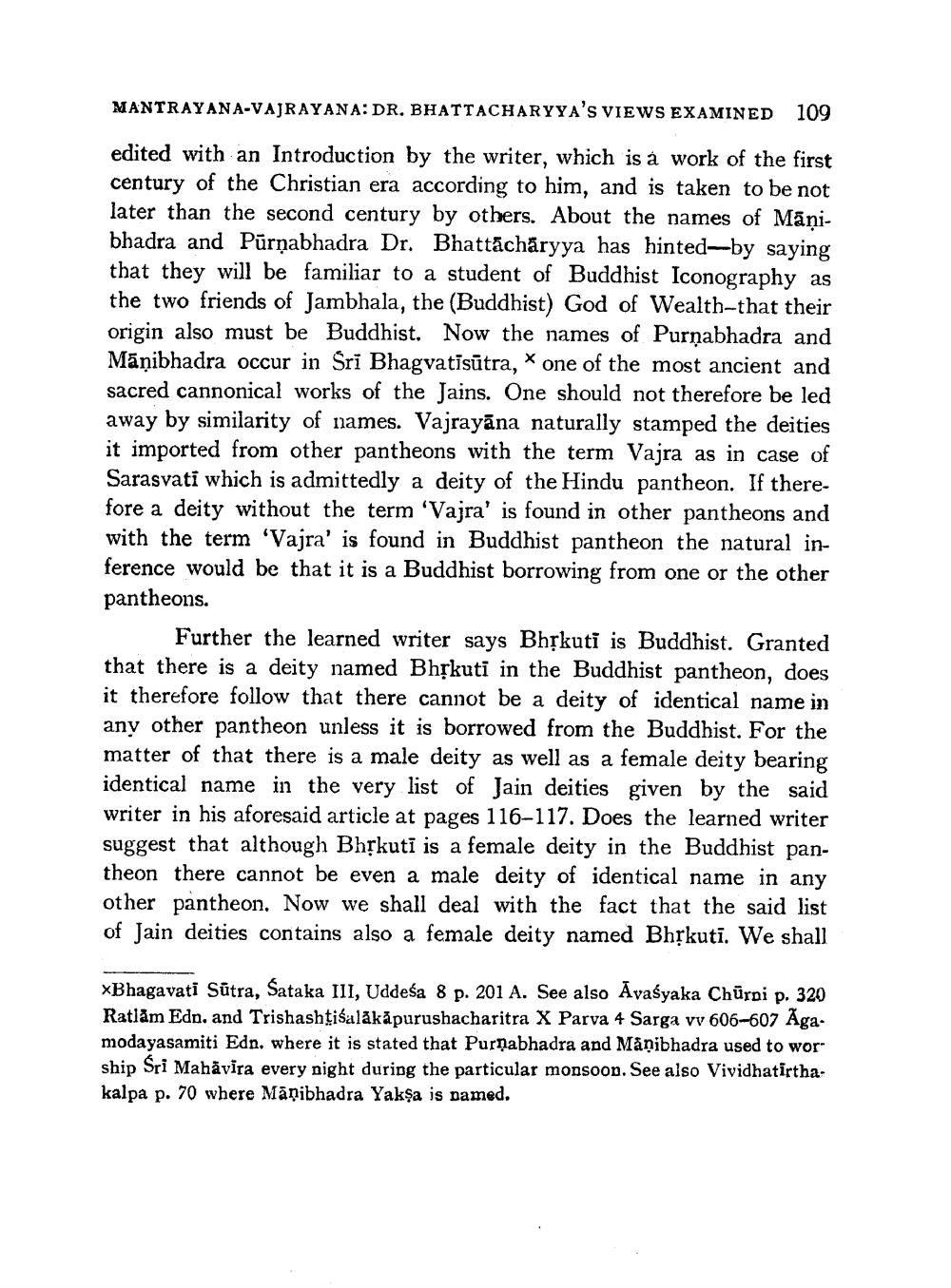________________
MANTRAYANA-VAJRAYANA: DR. BHATTACHARYYA'S VIEWS EXAMINED 109
edited with an Introduction by the writer, which is a work of the first century of the Christian era according to him, and is taken to be not later than the second century by others. About the names of Māņi. bhadra and Pūrņabhadra Dr. Bhattacharyya has hinted-by saying that they will be familiar to a student of Buddhist Iconography as the two friends of Jambhala, the (Buddhist) God of Wealth-that their origin also must be Buddhist. Now the names of Purņabhadra and Māṇibhadra occur in Sri Bhagvatisūtra, * one of the most ancient and sacred cannonical works of the Jains. One should not therefore be led away by similarity of names. Vajrayāna naturally stamped the deities it imported from other pantheons with the term Vajra as in case of Sarasvati which is admittedly a deity of the Hindu pantheon. If therefore a deity without the term 'Vajra' is found in other pantheons and with the term 'Vajra' is found in Buddhist pantheon the natural inference would be that it is a Buddhist borrowing from one or the other pantheons.
Further the learned writer says Bhrkuti is Buddhist. Granted that there is a deity named Bhộkuti in the Buddhist pantheon, does it therefore follow that there cannot be a deity of identical name in any other pantheon unless it is borrowed from the Buddhist. For the matter of that there is a male deity as well as a female deity bearing identical name in the very list of Jain deities given by the said writer in his aforesaid article at pages 116-117. Does the learned writer suggest that although Bhỉkutī is a female deity in the Buddhist pantheon there cannot be even a male deity of identical name in any other pantheon. Now we shall deal with the fact that the said list of Jain deities contains also a female deity named Bhřkuti. We shall
*Bhagavati Sūtra, Sataka III, Uddeśa 8 p. 201 A. See also Avaśyaka Chūrni p. 320 Ratlam Edn. and Trishashtiśalākāpurushacharitra X Parva 4 Sarga vv 606-607 Agamodayasamiti Edn. where it is stated that Purnabhadra and Måņibhadra used to wor ship Sri Mahāvīra every night during the particular monsoon. See also Vividhatirthakalpa p. 70 where Māņibhadra Yakşa is named.




